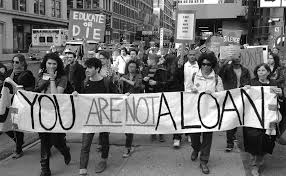On The Pursuit Of Happiness
 So how is it going? You know, that pursuit of happiness? Was it genius or was it a touch of madness for Jefferson to have inserted “that” (happiness) into the Declaration of Independence? Is there anything more unstable than happiness? Happiness is not up to me for a starter. Today I plan some actions that will make me happy. I will attend a funeral later this morning. I need to be there for the sake of a friend. His sister has passed away. My happiness in part is a aspect of my relationship with him and his family. I plan to wash a few windows later today. Several businesses could use clean windows for the festival that is scheduled for the coming weekend. The businesses are owned and operated by individuals whom I respect, and upon whom my well-being depends. Perhaps I’ve stumbled upon a definition of happiness: well-being? My action is a contribution to our well being.
So how is it going? You know, that pursuit of happiness? Was it genius or was it a touch of madness for Jefferson to have inserted “that” (happiness) into the Declaration of Independence? Is there anything more unstable than happiness? Happiness is not up to me for a starter. Today I plan some actions that will make me happy. I will attend a funeral later this morning. I need to be there for the sake of a friend. His sister has passed away. My happiness in part is a aspect of my relationship with him and his family. I plan to wash a few windows later today. Several businesses could use clean windows for the festival that is scheduled for the coming weekend. The businesses are owned and operated by individuals whom I respect, and upon whom my well-being depends. Perhaps I’ve stumbled upon a definition of happiness: well-being? My action is a contribution to our well being.
What if Thomas Jefferson had been satisfied with “life, liberty and property?” That would have been more straightforward. But wait. Was not that the essence of what Jefferson and company had fled? They came here to establish something radically different than another tyranny. Tyranny is when the uber-boss has all of the freedom, especially the public freedom, and yours is limited to what is done and said within the four walls of your home. So Jefferson insisted that “happiness,” public realization of shared happiness was the summum bonum of the new world of these United States.
Thus the task of government in a democracy, in the main, is to regulate and to limit the quantity and type of property/wealth that one man/woman can amass. If I have too much, then you will have no freedom, or happiness. It’s a matter of time. I’ll be able to buy out-sized influence, which will reduce you to peonage. Naturally you will still be free, but only within the four walls of your house.
Perhaps this makes little sense.
I’ll redeem this post, by a quotation from Jean Paul Sartre’s Existentialism is a Humanism.
Thus we have neither behind us, nor before us in a luminous realm of values, any means of justification or excuse. – We are left alone, without excuse. That is what I mean when I say that man is condemned to be free. Condemned, because he did not create himself, yet is nevertheless at liberty, and from the moment that he is thrown into this world he is responsible for everything he does.